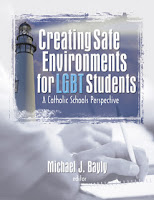But Magic would not tarry,
it moves from arm to arm.
It would not stay with them,
Magic is afoot,
it cannot come to harm . . .
“God is Alive, Magic is Afoot”
Words: Leonard Cohen
Music: Buffy Sainte-Marie
it moves from arm to arm.
It would not stay with them,
Magic is afoot,
it cannot come to harm . . .
“God is Alive, Magic is Afoot”
Words: Leonard Cohen
Music: Buffy Sainte-Marie
Recently, two Catholic priests, Joseph O’Leary and John Carville, have written insightful commentaries related to Pope Benedict XVI’s document, Summorum Pontificum.
In his commentary* in the Catholic Commentator, the official publication of the Baton Rouge diocese, Fr. John Carville points out that Summorum Pontificum is the pope’s attempt to “step toward reconciliation with a minority of Catholics who do not want to let go of the old Latin Mass [i.e. the Tridentine Mass] . . . celebrated before the Second Vatican Council.”
Fr. Joseph O’Leary, in his online commentary, calls the Catholics who comprise this minority, “neo-Tridentinists.”
Interestingly, both writers, in their own way, reflect on how recent efforts to revert to the Latin Mass are contrary to the movement of the Holy Spirit in the Church.
For instance, Carville notes that: “A fundamental liturgical principle is involved [in the issues raised by Summorum Pontificum] that was beautifully expressed by a bishop on the council floor of Vatican II, a bishop familiar with a rite far older than our Latin, Tridentine one dating from the 16th century. This most convincing argument came from an Eastern rite patriarch, Maximus IV Saigh of Antioch. He said that from the perspective of the Eastern rite it was strange that the presider in the liturgy would use a language that differed from that of his congregation, who in turn had to pray in a language they did not understand. ‘A living Church has no use for a dead language.’ Since it is the instrument of the Holy Spirit, language should be living.”
Yet according to Joseph O’Leary, those desperate to see a return of the Tridentine Mass and its Roman Canon are in denial of the Holy Spirit.
In his commentary, Manichees, Marcionites, Pneumatomachs, and Neo-Tridentinists, O’Leary notes: “The role of the Spirit in the revived [i.e., vernacular] liturgy is powerfully expressed; whereas there is no reference to the Spirit, and no Epiclesis, in the Roman Canon. The Spirit is another pesky Vatican II innovation that Tridentinists want to put back in its closet. While the pneumatological deficiencies of the Tridentine rite were blameless when we knew no better, consciously to revive them is to quench the Spirit and become a Pneumatomach [i.e., one who denies the sacred presence and action of the Holy Spirit].”
“Hence,” writes O’Leary, “the inopportune restoration of Tridentine rites is a move in the direction of three ancient heresies: Marcionism, Manicheanism and Pneumatomachism. This could be a fatal error for the Catholic Church.” (Note: I’ve added the links within these excerpts from O’Leary’s commentary.)
Carville concludes his July 18 commentary by reminding us of the work of the Holy Spirit at Vatican II and, in particular, the decision at this Ecumenical Council to approve the vernacular Mass – now the “ordinary and normative rite for our liturgy.”
Writes Carville: “We must remember that [in our] Catholic faith . . . the teachings of Ecumenical Councils, in union with the pope, are guided by the Holy Spirit. They are the result of debate, but in this case the voice of the Spirit seems to have been heard rather clearly. The vote approving the Constitution on the Liturgy was 2,162 for and 46 against. Seven votes were invalid. The Holy Spirit had lined up his votes rather well. We forget so soon, and in the name of tradition.”
All this talk of the Spirit being sidelined and ignored just makes me smile, chuckle, and recall the beautiful and haunting Buffy Sainte-Marie song, “God is Alive, Magic is Afoot” – with lyrics by Leonard Cohen. In the context of this song, “Magic” can readily be seen to be synonymous with “the Spirit” - a Spirit that is very much alive and which “cannot come to harm” by our misguided attempts to ignore or extinguish it.
God is afoot; Magic is alive.
Alive is afoot,
Magic never died . . .
God was ruler.
Though his funeral lengthened,
though his mourners thickened,
Magic never fled.
Though his shrouds were hoisted
the naked God did live.
Though his words were twisted
the naked Magic thrived.
Though his death was published
round and round the world,
the heart did not believe.
Many hurt men wondered,
many struck men bled.
Magic never faltered,
Magic always led . . .
Though laws were carved in marble,
they could not shelter men.
Though altars built in parliaments,
they could not order men.
Police arrested Magic,
and Magic went with them,
for Magic loves the hungry.
But Magic would not tarry,
it moves from arm to arm.
It would not stay with them,
Magic is afoot,
it cannot come to harm.
It rests in an empty palm,
it spawns in an empty mind,
but Magic is no instrument,
Magic is the end . . .
This I mean to whisper to my mind.
This I mean to laugh with in my mind.
This I mean my mind to serve
'til service is but Magic
moving through the world;
and mind itself is Magic
coursing through the flesh;
and flesh itself is Magic
dancing on a clock
and time itself the magic length of God.
Words: Leonard Cohen
Music: Buffy Sainte-Marie**
© Stranger Music, Inc./Caleb Music-ASCAP
Alive is afoot,
Magic never died . . .
God was ruler.
Though his funeral lengthened,
though his mourners thickened,
Magic never fled.
Though his shrouds were hoisted
the naked God did live.
Though his words were twisted
the naked Magic thrived.
Though his death was published
round and round the world,
the heart did not believe.
Many hurt men wondered,
many struck men bled.
Magic never faltered,
Magic always led . . .
Though laws were carved in marble,
they could not shelter men.
Though altars built in parliaments,
they could not order men.
Police arrested Magic,
and Magic went with them,
for Magic loves the hungry.
But Magic would not tarry,
it moves from arm to arm.
It would not stay with them,
Magic is afoot,
it cannot come to harm.
It rests in an empty palm,
it spawns in an empty mind,
but Magic is no instrument,
Magic is the end . . .
This I mean to whisper to my mind.
This I mean to laugh with in my mind.
This I mean my mind to serve
'til service is but Magic
moving through the world;
and mind itself is Magic
coursing through the flesh;
and flesh itself is Magic
dancing on a clock
and time itself the magic length of God.
Words: Leonard Cohen
Music: Buffy Sainte-Marie**
© Stranger Music, Inc./Caleb Music-ASCAP
* To read Fr. John Carville’s commentary in its entirety, see page 4 of this PDF document.
For a reaction from a “neo-Tridentinist” to Fr. Carville’s commentary, click here.
** “God is Alive, Magic is Afoot” is available on Buffy Sainte-Marie’s album, Illuminations.
See also the previous Wild Reed posts:
The New Motu Proprio: “Nothing but Headaches for Bishops, Priests, and Laity”?
Joan Chittister on the Restoration of the Tridentine Latin Rite
James Carroll on “Pope Benedict’s Mistake”
“Uncle Vince” is at it Again






















2 comments:
I would like to point out a very common error that is repeated by Fr. Carville. The "vernacular" mass is not the "normative rite for our liturgy," but rather the Novus Ordo which is officially published in latin. There is not an old latin mass and a new vernacular mass. Both liturgies are in latin, but the newer form is allowed to be celebrated in the congregation's mother tongue.
Another problem arises with claiming that "recent efforts to revert to the Latin Mass are contrary to the movement of the Holy Spirit in the Church" when one actually reads the documents of Vatican II. The 2,162 votes for and 46 against Sancrosanctum Concilium included voting for the following:
36. 1. Particular law remaining in force, the use of the Latin language is to be preserved in the Latin rites.
54. In Masses which are celebrated with the people, a suitable place may be allotted to their mother tongue. This is to apply in the first place to the readings and "the common prayer," but also, as local conditions may warrant, to those parts which pertain to the people, ...
Nevertheless steps should be taken so that the faithful may also be able to say or to sing together in Latin those parts of the Ordinary of the Mass which pertain to them.
Simply allowing the older missal of 1962 to be used by those who desire it is in no way a reversion. Do you know of a single parish where the faithful will no longer be able to find a mass celebrated in their native language?
I would have thought you'd be in favor of Pope Benedict's liberalization of the mass.
The Mass in Latin has of course never been abolished -- a beautiful celebration of the Mass in Latin could be observed at the beatification of Mother Teresa. The 1962 Tridentine Missal was, however, abolished, until re-allowed for certain groups by John Paul II.
Measured by basic theological criteria the step back to this older form of the Roman rite is regressive: it does not encourage lay participation, its lectionary offers only an extremely narrow selection of Scripture, and it uses only the Roman Canon, whereas the other eucharistic prayers in the current missal recover elements such as the epiklesis that were lost. I do not see how one can celebrate a Tridentine Mass without subscribing to these regressive implications.
Post a Comment